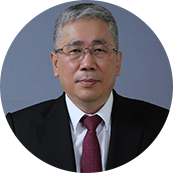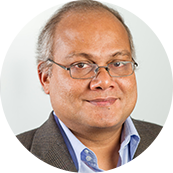- +86 -147 0286 6895
- July 7-9, 2023 | Xi'An, China
Keynote Speakers
- Home
- Keynote Speakers
Keynote Speakers

Ping Zhang
Academician of Chinese Academy of Engineering, IEEE Fellow
Beijing University of Posts and Telecommunications, China
Bio: Ping Zhang, academician of Chinese Academy of Engineering, IEEE Fellow, Professor with Beijing University of Posts and Telecommunications, Ph.D. supervisor, the director of State Key Laboratory of Networking and Switching Technology. He is also the director of Department of Broadband Communication of Peng Cheng Laboratory, the director of ZGC Institute of Ubiquitous-X Innovation and Applications (X-NET) and honorary president of China Telecom Research Institute, Editor-in-Chief of Journal on Communications. He is a member of IMT-2020 (5G) Experts Panel, a member of Experts Panel for China’s 6G development, and has received many awards and honors including the Grand Prize for the National Science and Technology Progress Award. He is one of the most well-known key contributors to the development of China-pioneered mobile communication technologies, which have been widely adopted on a global scale. His research interests include next-generation mobile networks, semantic communications, and intellicise communication system.

Jiangzhou Wang
IEEE Fellow
University of Kent, UK
Bio: Jiangzhou Wang is a Professor with the University of Kent, U.K. He has published more than 400 papers and four books. His research focuses on mobile communications. He was a recipient of the 2022 IEEE Communications Society Leonard G. Abraham Prize and IEEE Globecom2012 Best Paper Award. He was the Technical Program Chair of the 2019 IEEE International Conference on Communications (ICC2019), Shanghai, Executive Chair of the IEEE ICC2015, London, and Technical Program Chair of the IEEE WCNC2013. He is/was the editor of a number of international journals, including IEEE Transactions on Communications from 1998 to 2013. Professor Wang is a Fellow of the Royal Academy of Engineering, U.K., Fellow of the IEEE, and Fellow of the IET.
Speech Title: Network-based Integrated Sensing and Communications
Abstract: With the advent of the era of 6G mobile communications, the integration of several core technologies such as sensing and communication has become inevitable. But network-based integration faces many challenges. What are technical challenges? This lecture will explore these open questions.

Arumugam Nallanathan
IEEE Fellow
Queen Mary University of London, UK
Bio: Arumugam Nallanathan is Professor of Wireless Communications and the founding head of the Communication Systems Research (CSR) group in the School of Electronic Engineering and Computer Science at Queen Mary University of London since September 2017. He was with the Department of Informatics at King’s College London from December 2007 to August 2017, where he was Professor of Wireless Communications from April 2013 to August 2017. He was an Assistant Professor in the Department of Electrical and Computer Engineering, National University of Singapore from August 2000 to December 2007. His research interests include 6G Wireless Networks and Internet of Things (IoT). He published nearly 600 technical papers in scientific journals and international conferences. He is a co-recipient of the Best Paper Awards presented at the IEEE International Conference on Communications 2016 (ICC’2016), IEEE Global Communications Conference 2017 (GLOBECOM’2017) and IEEE Vehicular Technology Conference 2017 (VTC’2017). He is a co-receipient of IEEE Communications Society Leonard G. Abraham Prize, 2022.
He is an Editor-at-Large for IEEE Transactions on Communications and a senior editor for IEEE Wireless Communications Letters. He was an Editor for IEEE Transactions on Wireless Communications (2006-2011), IEEE Transactions on Vehicular Technology (2006-2017), IEEE Signal Processing Letters and a Guest Editor for IEEE Journal on Selected Areas in Communications (JSAC). He served as the Chair for the Signal Processing and Computing for Communications (SPCC-TC) of IEEE Communications Society and Technical Program Chair and member of Technical Program Committees in numerous IEEE conferences. He received the IEEE Communications Society SPCE outstanding service award 2012 and IEEE Communications Society RCC outstanding service award 2014. He has been selected as a Web of Science (ISI) Highly Cited Researcher in 2016 and 2022. He is an IEEE Fellow and IEEE Distinguished Lecturer.
Speech Title: Federated Learning for Energy-limited Wireless Networks
Abstract: Federated learning (FL) is a promising distributed learning approach for protecting data privacy. In FL, edge devices collaboratively train a model under the orchestration of a parameter server (PS), which only requires local learning models/gradients instead of local private data. FL operations can be divided into two parts, namely the communication part and the computation part. For the communication part, the learning performance is constrained by the limited communication resources, e.g., bandwidth and energy. For the computation part, the model accuracy is degraded by non-independent and identically distributed (non-IID) data samples. More specifically, the inadequate wireless resources hinder more devices devoted to the FL training process, and thus negatively affect the convergence speed and learning accuracy. Moreover, since the PS aggregates models learned from the different devices, the data heterogeneity presented on different devices may lead to weak generalization ability of the trained global model, even resulting in an unstable training process of FL. Therefore, FL needs well-designed solutions to address these two challenges. In this talk, two approaches, namely a partial model aggregation-based approach and a knowledge-aided FL approach will be presented. Promising research directions and possible FL solutions will also be discussed.